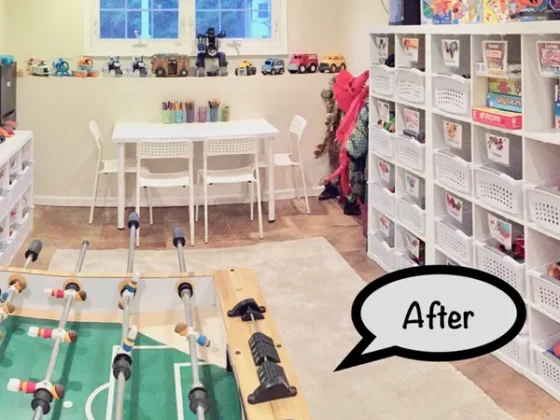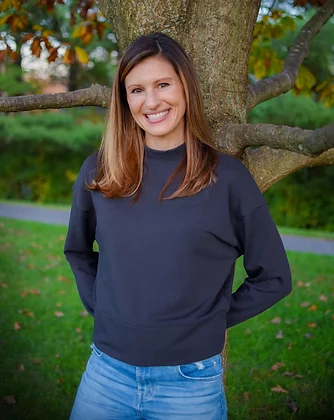Viruses tend to thrive in populations that have never experienced them. Due to the Covid-19 pandemic, small children spent most of their early years sheltered away from the viruses that would normally strengthen their immune systems. This lack of exposure is why they are most vulnerable now to respiratory viruses.
As a parent, it’s a hard enough time knowing your kid is sick, let alone having to make key decisions about how to treat them and whether to get them assessed or not.
In this episode, Sarah sits down with pediatrician Jessica Hochman, MD to answer some of the most common questions parents have when it comes to viruses and illness. They discuss what we can expect from viruses this season compared to others, when you should seek medical help for your child, how to manage common symptoms and what you can do to prevent illness this winter.
Is it worse this year compared to prior years?
We are definitely seeing more illness compared to the past couple of years. Viruses are more prevalent this year than we’ve seen since the pandemic started, and that makes sense as we spent a lot of time away from each other. We were distanced, we weren’t interacting socially and so there were fewer viruses.
Another issue is that the seasons of some of these viruses have shifted sooner. RSV is the big one that everybody’s talking about. The season of RSV is very common, typically running from October through to April. But we’re seeing a higher number of cases at this time of year than we’ve seen in years past.
RSV peaks around January or so, and we’re seeing a higher number of cases in October than we have seen in the past number of years. That may just be because we don’t have population
immunity. It may be because we haven’t been interacting, so a lot of us are more susceptible. For example, if you are a three or four year old and you missed the last couple of years of RSV season, all of a sudden we have a lot more kids that have never had it before, that don’t have immunity.
If you’ve had a positive case of RSV in the past, are you immune to it now?
It’s not like chickenpox and unfortunately, you can get it again. Often, like a lot of illnesses, the first time you get it is the hardest.
In past years, RSV has been a very common virus. It’s so common that most kids, well over 80% in most years, get RSV by the time they’re two years old.
It’s so common that for most people that get it, it presents like a cold congestion and cough symptoms. Sometimes it doesn’t get better for a couple of weeks and the cough can linger.
Particularly premature kids, kids that are under six months of age, and kids with asthma can be hit a little harder by it, where you notice symptoms of wheezing and difficulty breathing.
But for most people it looks like a cold.
When is it appropriate to bring your kid in and have them assessed? What are the signs to look out for?
One of the biggest things to look out for is any signs of respiratory distress or difficulty breathing.
So anytime the airway is involved, you see a child really working to breathe, or they’re having a hard time catching their breath, would be a cause for concern. If they’re breathing more than one breath per second, that would be a reason to see a doctor.
Another clue that they’re having trouble breathing is if they can’t feed very well – especially babies. If you give them a bottle or you’re breastfeeding and they have to pop off because they need to catch their breath, that would be a concerning sign.
The other reason you would want a child to be seen would be if you’re worried that they’re dehydrated. Anytime you notice that they’re not really peeing very much or they look dry, that would be a reason to see a doctor.
Being lethargic is something else to be concerned about. A lot of people use the word lethargic very loosely, even if their kid is just a bit tired, but truly being lethargic means they are really low in energy or not responding very well. That’s a definite reason to see a doctor asap.
What should you do if your child has a fever?
When a child has a fever, it’s normal to immediately worry. People have become nervous about fevers after all the temperature checks that people were doing. The truth is, a fever in itself is not a bad thing. What can be troublesome or worrisome is how a child is acting. So if the fever makes them act really lethargic, reduces their appetite, gives them severe headaches or changes their behavior, that can cause concern.
A fever is really the body’s natural way of fighting an infection. It gets hot internally. It keeps your child subdued while letting their body heal. So a fever in itself is not a bad thing. The discomfort that it can bring is what you need to watch out for.
Kids are more prone to fevers than adults. People often want to know the magic number that is too high for a fever? For a child under six months with a fever, you should really reach out to your doctor.But for over 6 months, it really all depends on how the child is feeling. The exception would be if you see 106 or higher, then you should take them in. Otherwise, if they have 104/105 and are talking to you, smiling, drinking and eating, there’s no need to do anything other than treat them at home.
What are febrile seizures and how should you handle them?
Febrile seizures are seizures that result from when a younger child has a fever. The rate of how quickly the fever ascends provokes a fever in kids, specifically kids that are younger, usually around two years of age or so but it can happen anywhere from six months to six years.
Usually the worst part about febrile seizures is the trauma or the PTSD a parent feels from watching the seizure. Most kids that have a febrile seizure come out of it totally unscathed and do not go on to develop absolute epilepsy, where you get recurring seizures.
If you are a parent whose child has a febrile seizure, remember the number one thing is to make sure that they are safe. Make sure they’re not in a location where they’ll hit their head or by a swimming pool or somewhere they could get into. If having a seizure, parents should call 911 after 3 minutes – brain damage does not happen unless seizures happen well over 15 minutes, but most are much shorter than that.
What are some specific things that new parents or parents of young kids should have in their home to help manage symptoms?
Number one is to keep something to bring a fever down or to help with body aches and discomfort. These are called antipyretics or anti fever medications, one of either Tylenol or Ibuprofen.
Other things include nasal saline to help if you’re congested. You can also have a humidifier if you feel like that helps you.
What are the best prevention tips?
The best thing to do is wash your hands, especially if you’re around somebody who’s sick. Ventilation is also important so keep the windows open if you can. Also keep in mind that most viruses are found in nasal mucus, as opposed to saliva as most people think. Make sure to throw away tissues if you do touch a tissue.
Going back to basics and ensuring you exercise, get plenty of sleep and eat right can all help. Prioritize self care, hang out with good people and keep your environment positive. That can be really helpful in keeping a strong immunity.
More about Jessica

Dr. Jessica Hochman is a board-certified pediatrician who has a passion for taking care of her patients.
She is a fellow of the American Academy of Pediatrics and has been recognized as a 2019, 2020 and 2021 Southern California Rising Star by “Southern California Super Doctors Magazine” for her commitment to providing the highest-quality health care.
Jessica studied psychobiology while attending UCLA and graduated as a member of Phi Beta Kappa. At Boston University, Jessica completed her Master’s degree in Medical Science, completing her thesis evaluating the effects of a low-carbohydrate diet. She earned her medical degree from Boston University in 2008.
Aside from her clinical work, Jessica enjoys spending time with her family, including her husband and three young children.
You can follow Jessica on Instagram @askdrjessica or visit her website: www.askdrjessicamd.com
She also has a weekly podcast to help parents worry less: Ask Dr Jessica








